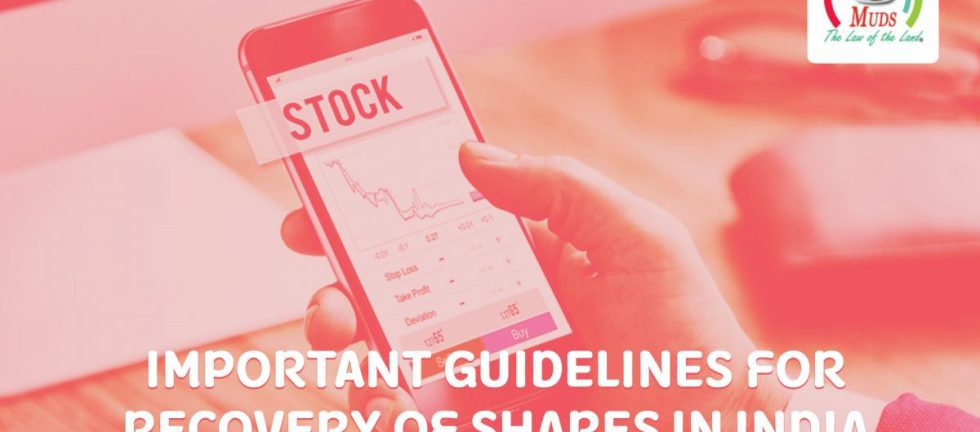Introduction
The SEBI developed a framework for physical stockholders to give PAN, KYC information, banking details, signatures, and other information, as well as streamlining and standardization parameters for IEPF. All legitimate stockholders and investors must provide their PAN, registration, contact details, bank account details, and a sample signature to SEBI. SEBI has directed companies and RTAs to present such applications using documentation that are digitally signed and obtained via email.
If above listed documents are not readily available on or around April 1, 2023, the RTA shall freeze the portfolio. The PML Act 2002 and the Benami Transactions (Prohibitions) Act 1988, among other laws, would refer the accounts to the administering authorities if the accounts were frozen until 2025. Now let us know about getting your hands on IEPF unrecovered shares in India.
Recover Before It’s Too Late!!
Any sum stored to the firm’s unpaid dividend account that has not been paid or claimed for more than seven years after the timeline of proclamation must be transmitted to the IEPF along with interest, according to the IEPF Rules 2017. The company must submit to the IEPF authority an official format summary statement the precise details of the transmission. The regulator must also issue an invoice as proof of transmission.
Recovery Of Share Procedure in India
Submitting IEPF unclaimed shares for share recovery in India
A shareholder may claim the shares in accordance with the process outlined in sub-section (6) of section 124 or submit an application under clause (a) of sub-section (3) of section 125 if their equity, unclaimed dividend income, matured deposits or debentures, application money to be reimbursed and any interest on it, and other assets have been transferred to the IEPF.
- Application details;
- Company information;
- Information about the self-claimed shares;
- Proof of eligibility;
- The claimant’s Demat account or the extent of their entitlement will receive credit for the shares. When shares are represented by physical certificates, duplicate certificates are canceled and the claimant is handed the shares.
- The corporation provides the authorities with the claimant’s approved reimbursement application.
A smart technology called MUDS helps clients collect these unclaimed assets easily and without fuss. You will get end-to-end assistance with;
- Issuing Of Duplicate Shares in a Share Transfer
- Repositioning of shares
- Title Transfer Act
We’ll help you get your unclaimed securities back. Some Notable MUDS Services Include the Following
Service 1: Transmission of shares
It is the legal process of transferring ownership of a share from the initial holder to a claimant or legal heir due to circumstances other than natural transfer, such as insolvency, death, marriage, insanity, or any other acceptable reason.
The claimant or legal heir takes ownership of the shares after the transfer of the shares is successfully completed. People who own such shares are also eligible for the benefits that go along with them.
The following types of documentation are frequently used to transfer shares:
- petition for the formal transference of shares
- an authentic copy of the death certificate for the original holder
- obtaining Letters of Administration or Wills in Probate Signature on the PAN copy of the claimant, legal heir, or successor (self-attested)
Service 2: Transfer of shares
A transfer of shares is the intentional passing of the claims’ title from the transferor to the transferee. Following the completion of such a transaction, the transferor’s liability is transferred to the share recipient. The document used in the transfer of shares is the transfer deed.
Service 3: Transfer of unclaimed dividend
When a company makes a profit, dividends are the profits that are made available to shareholders. The dividend value for shareholders fluctuates depending on how much of the company’s stock they own. As previously mentioned, unclaimed dividends that go unclaimed for seven consecutive years are transferred to the Investor Education and Protection Fund (IEPF) account. Shareholders now have the option to recover such securities, thanks to SEBI.
Conclusion
The goal of MUDS Management Pvt Ltd is to assist investors in locating unclaimed funds that have lain dormant for many years. Investors and unclaimed investments that are these investors’ property are separated by a chasm. For investors in India and around the world, we exist to close the gap between them and their unclaimed assets and to make sure that the investments are returned to the rightful owner.


